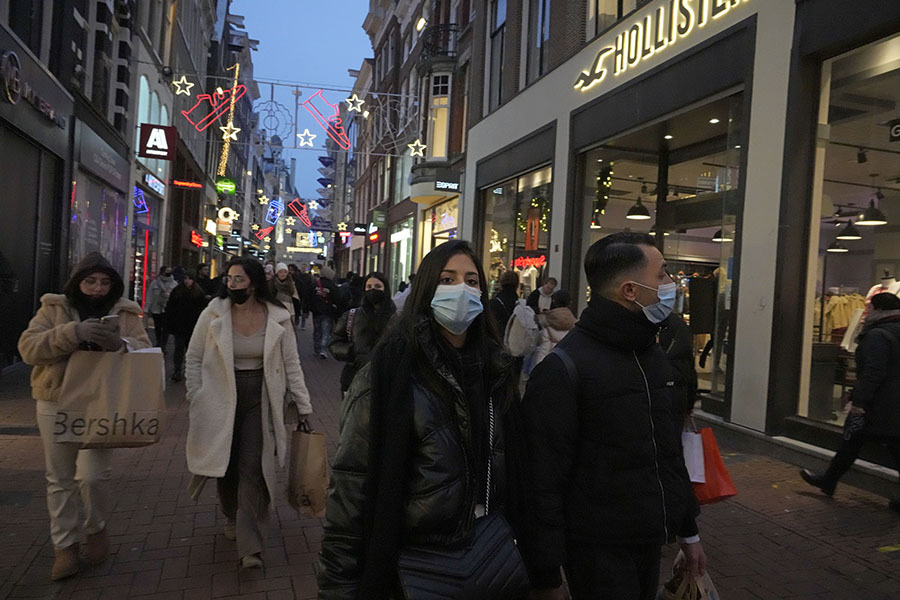In Russia, over the past day, 27,967 new cases of coronavirus infection were detected.
During this time, 32 655 people have fully recovered in the country, 1023 patients have died.
The largest number of new cases over the past 24 hours were recorded in Moscow (3013), St. Petersburg (1955) and the Moscow region (1825).
The total number of COVID-19 cases registered in the country has reached 10,214,790.Since the beginning of the pandemic, 8,984,921 people have been cured in Russia, and 297,203 patients have died.
According to Rospotrebnadzor, more than 234 million laboratory tests were carried out in the country during the pandemic to detect COVID-19.
According to the operational headquarters for control and monitoring of the situation with coronavirus in Moscow, 717 people were hospitalized in the capital per day, 531 people are on ventilator.
"In the capital, 81 patients died, all of them were diagnosed with pneumonia and received a positive test result for COVID-19," the headquarters added.
Recall that mass vaccination against coronavirus continues in Russia.
The Russians can be vaccinated with one of the vaccines registered in the country: "Sputnik V" and "Sputnik Light" Center.
Gamalei, "KoviVak" center named after
Chumakov, "EpiVacCorona" and "EpiVacCorona-N" of the Novosibirsk center "Vector".
As President Vladimir Putin noted, the Russian Sputnik V coronavirus vaccine works well against the omicron strain.
Scientists of the Center.
The Gamaleys also noted that Sputnik V protects against a severe course of the disease, and the use of Sputnik Light six months after vaccination increases protection for those who were initially vaccinated with other drugs.
Meanwhile, WHO spokesman Margaret Harris told RT about the reasons for the delay in recognizing the Russian drug.
According to her, experts from the World Health Organization continue to evaluate the technical dossier of the Russian vaccine and are awaiting additional information.
“We are still evaluating the technical dossier for the Sputnik V vaccine and awaiting additional information.
The process continues, "she said in an interview with RT.
Harris also talked about the difference between the omicron strain from previous variants of the coronavirus.
“It is able to spread much faster.
We have seen rapid growth both in South Africa and in Europe: it doubles in less than two days, ”she concluded.
The situation with the omicron strain
A number of European countries have reported tightening restrictive measures amid the spread of the omicron coronavirus strain.
Thus, the authorities of Paris canceled some events planned in the city on the occasion of the New Year celebrations.
In early December, France also tightened the rules for entering the territory of the state in connection with the proliferation of "omicron".
And about.
Prime Minister of the Netherlands Mark Rutte announced that the country is introducing strict quarantine in order to stop the spread of the virus too quickly.
AP
© Peter Dejong
“The Netherlands is again forced to close.
This is necessary because of the new wave with the omicron-variant, ”TASS quotes him as saying.
Educational institutions remain closed in the country, sports competitions are held without the participation of spectators, residents are encouraged to work from home and receive no more than two guests a day.
The mayor of London, Sadiq Khan, declared a state of emergency on the eve of a sharp increase in the number of cases of infection with the omicron strain.
According to him, in 24 hours the city has recorded the largest number of cases of COVID-19 since the beginning of the pandemic - more than 26 thousand.
The Austrian authorities said that due to the threat of the spread of the new strain from December 20, only persons vaccinated or ill with COVID-19 will be allowed to enter the country.
You should also have a negative PCR test with you.
"If there is no negative test result, then immediate quarantine is required," the Austrian Foreign Ministry said in a statement.
Persons who have contraindications to vaccination, pregnant women, transit passengers, schoolchildren, as well as those who come to work in international organizations, it will be enough to present only a negative PCR test.
From December 20, the German government has included the UK in the list of regions with a wide spread of mutations of the new coronavirus infection.
In this regard, all arriving from the UK in Germany will have to go through a two-week quarantine.
The Greek authorities, in connection with the threat of the spread of "omicron" from December 19, will allow entry into the country only if there is a negative PCR test, regardless of vaccination or previously transferred COVID-19.

